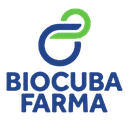Executive Secretary

VIII International Symposium on Chemistry and Pharmaceutical Sciences
SIPN
4th International Symposium "Chemistry of natural products”
Abstract
Introduction: Jatropha gossypifolia L. is a plant species known as “tuatua”, which is widely used in popular medicine for the treatment of various diseases that include skin infections, eczema, leprosy, boils and in the treatment of gastrointestinal ulcers. . Objective: To evaluate in vivo the healing activity of the hydroalcoholic extract and the emulgels obtained from Jatropha gossypifolia L. Materials and Methods: A phytochemical evaluation of the hydroalcoholic extract of the plant was developed that included phytochemical screening showing the presence of saponins, alkaloids, flavonoids, free amino acids, coumarins, reducing sugars and quinones as main secondary metabolites. Threeemulgels were prepared using 0.4, 2 and 5% of the hydroalcoholic extract of Jatropha gossypifolia L. and the in vivo method of induced lesions in mice was used to evaluate the healing activity of the extract, emulgels and base emulgel. Results: The healing activity of the hydroalcoholic extract of Jatropha gossypifolia L. and emulgels was experimentally corroborated, where the one made with 2% of the extract had the greatest healing effect within the treated groups. Flavonoids, among the metabolites present, could be responsible for this activity. Conclusions: Emulgels made from the hydroalcoholic extract of the plant have a healing effect.
Resumen
Introducción: Jatropha gossypifolia L. es una especie vegetal conocida como “tuatua”, la cual es ampliamente utilizada en la medicina popular para el tratamiento de diversas enfermedades que incluyen infecciones en la piel, eczema, lepra, forúnculos y en el tratamiento de úlceras gastrointestinales. Objetivo: Evaluar in vivo la actividad cicatrizante del extracto hidroalcohólico y los emulgeles obtenidos a partir de Jatropha gossypifolia L. Materiales y Métodos: Se desarrolló una evaluación fitoquímica del extracto hidroalcohólico de la planta que incluyó el tamizaje fitoquímico mostrando la presencia de saponinas, alcaloides, flavonoides, aminoácidos libres, coumarinas, azúcares reductores y quinonas como principales metabolitos secundarios. Se elaboraron tresemulgeles empleando 0.4, 2 y 5 % del extracto hidroalcohólico de Jatrophagossypifolia L. y se empleó el método in vivo de lesiones inducidas en ratones para evaluar la actividad cicatrizante del extracto, emulgeles y emulgel base. Resultados: Se corroboró experimentalmente la actividad cicatrizante del extracto hidroalcohólico de Jatropha gossypifolia L. y emulgeles donde el elaborado con un 2% del extracto resultó el de mayor efecto cicatrizante dentro de los grupos tratados. Los flavonoides, dentro de los metabolitos presentes, podrían ser responsables de dicha actividad. Conclusiones: Los emulgeles elaborados a partir del extracto hidroalcohólico de la planta presentan efecto cicatrizante.
About The Speaker

MsC. Arelys López Sacerio

Discussion




